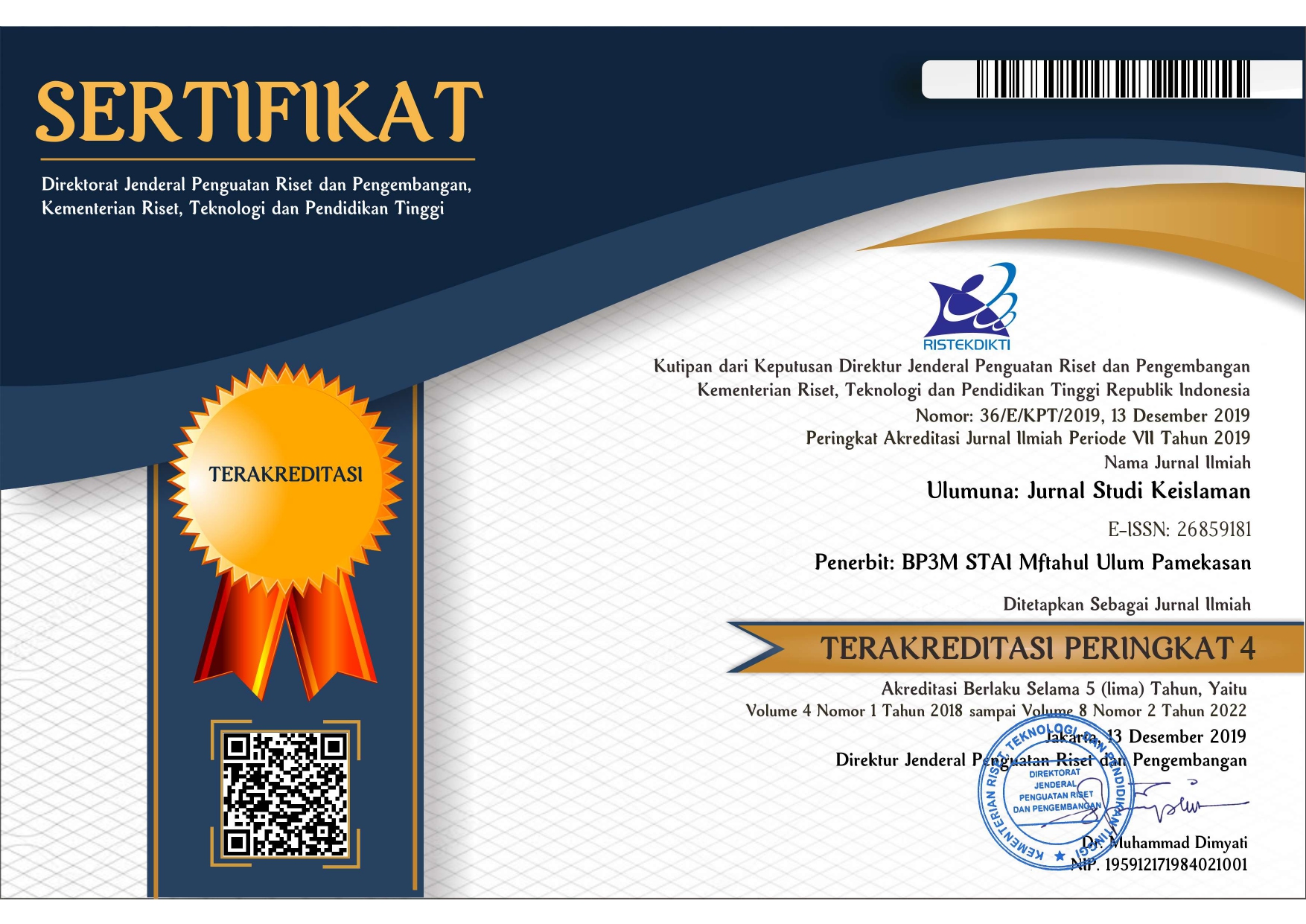KRITIK EKONOMI ISLAM TERHADAP MEKANISME DISTRIBUSI PENDAPATAN DALAM SISTEM EKONOMI KAPITALIS
Keywords:
Invisible Hand, Basic Need, Tauhid, al-Adl, KhilafahAbstract
The system of free-market as a modern society system, in reality, does not fully prop prosperity up for society. This as if contradicts to Invisible Hand theory of Adam Smith becoming background of free-market system. In one hand, it cannot be denied that the free-market system has helped the achievement of economic growth rapidly. But, in another hand, that growth is not gathered with equalization so it causes the social imbalance and discrepancy. In fact, the benefit of free-market system is only taken by the investors, while the poor people must allow their power to be sold to the investors. Therefore, by the imbalance fact of free-market system, it is proper that the existence of free-market as an income distribution mechanism is questionable. By that fact, Islamic economy offers an alternative solution due to inefficient free-market system in capitalism system. That solution is by giving government opportunity as regulator.This is urgent because by their authority, the imbalance of market mechanism can be minimized. Their actualization in the public is based on Tauhid, al-Adl, and Khilafah principle as the basic of economic interaction. In this case, the main act of government is related to the fulfillment of basic need and guarantee in achieving the spiritual values implementation in the social lifeReferences
A. Sony Keraf, Keadilan, Pasar Bebas, dan Peran Pemerintah : Telaah Atas Etika Politik Ekonomi Adam Smith, Jurnal Prisma, Vol. 9, September 1995
AA. Islahi, Konsep Ekonomi Ibn Taimiyah, terj. H. Anshari Thayib, Surabaya: PT. Bina Ilmu, 1997
Arief Ramelan Karseno, Peran Pemerintah Dalam Ekonomi Pasar, dalam Kritik Sosial Dalam Wacana Pembangunan, edt. Dr. Mohtar Mas’oed, Yogyakarta: UII Press, 1999
Edi Suharto,Welfare State Dan Pembangunan Kesejahteraan Sosial, dalam www.policy.hu/suharto/modul_a/makindo_40.htm/12-05-2008/09:47
Faranz Magnis Suseno, Pemikiran Karl Marx: dari Sosialisme Uthopis Keperselisihan Revisionisme, Jakarta : PT.Gramedia Pustaka Utama, 2003
Kevin Danaher, 10 Reason Abolish IMF And World Bank, terj. AB. Widyanta, Yogyakarta: Pustaka Cindelaras, 2005
M. Umar Chapra, Negara Sejahtera dalam Islam Dan Peranannya Di bidang Ekonomi dalam “Etika Ekonomi Politikâ€, edt. Ainur R. Shopian, Surabaya: Risalah Gusti, 1997
M. Umer Chapra, Islam Dan Tantangan Ekonomi : Islamisasi Ekonomi Kotemporer, Terjemah Nur Hadi Ihsan, Surabaya: Risalah Gusti,1998
Mark Skousen, Sang Maestro Teori-Teori Ekonomi Modern, Jakarta: Prenanda Media, 2005
Steven Pressman, Lima Puluh Pemikir Ekonomi Dunia, Alih Bahasa Tri Wibowo Budi Santoso, Jakarta: PT. Raja Grafindo Persada, 2000
Suherman Rosyidi, Pengantar Teori Ekonomi: Pendekatan Kepada Teori Ekonomi Makro Dan Mikro, Jakarta: PT.. Raja Grafindo, 1996
Winardi, Sejarah Perkembangan Ilmu Ekonomi, Bandung: Transito, 1985
www. Id.wikipedia.org/Laissez faire/03-07-2008/19:30
www.id.wikipedia.org/pasar bebas/ /3-07-2008/21:30
www.tkpkri.org/peta rakyat miskin/27-06-2008/14:20
AA. Islahi, Konsep Ekonomi Ibn Taimiyah, terj. H. Anshari Thayib, Surabaya: PT. Bina Ilmu, 1997
Arief Ramelan Karseno, Peran Pemerintah Dalam Ekonomi Pasar, dalam Kritik Sosial Dalam Wacana Pembangunan, edt. Dr. Mohtar Mas’oed, Yogyakarta: UII Press, 1999
Edi Suharto,Welfare State Dan Pembangunan Kesejahteraan Sosial, dalam www.policy.hu/suharto/modul_a/makindo_40.htm/12-05-2008/09:47
Faranz Magnis Suseno, Pemikiran Karl Marx: dari Sosialisme Uthopis Keperselisihan Revisionisme, Jakarta : PT.Gramedia Pustaka Utama, 2003
Kevin Danaher, 10 Reason Abolish IMF And World Bank, terj. AB. Widyanta, Yogyakarta: Pustaka Cindelaras, 2005
M. Umar Chapra, Negara Sejahtera dalam Islam Dan Peranannya Di bidang Ekonomi dalam “Etika Ekonomi Politikâ€, edt. Ainur R. Shopian, Surabaya: Risalah Gusti, 1997
M. Umer Chapra, Islam Dan Tantangan Ekonomi : Islamisasi Ekonomi Kotemporer, Terjemah Nur Hadi Ihsan, Surabaya: Risalah Gusti,1998
Mark Skousen, Sang Maestro Teori-Teori Ekonomi Modern, Jakarta: Prenanda Media, 2005
Steven Pressman, Lima Puluh Pemikir Ekonomi Dunia, Alih Bahasa Tri Wibowo Budi Santoso, Jakarta: PT. Raja Grafindo Persada, 2000
Suherman Rosyidi, Pengantar Teori Ekonomi: Pendekatan Kepada Teori Ekonomi Makro Dan Mikro, Jakarta: PT.. Raja Grafindo, 1996
Winardi, Sejarah Perkembangan Ilmu Ekonomi, Bandung: Transito, 1985
www. Id.wikipedia.org/Laissez faire/03-07-2008/19:30
www.id.wikipedia.org/pasar bebas/ /3-07-2008/21:30
www.tkpkri.org/peta rakyat miskin/27-06-2008/14:20
Downloads
Published
2015-12-11
How to Cite
Kambali, M. (2015). KRITIK EKONOMI ISLAM TERHADAP MEKANISME DISTRIBUSI PENDAPATAN DALAM SISTEM EKONOMI KAPITALIS. Ulumuna: Jurnal Studi Keislaman, 1(2). Retrieved from https://ejournal.kopertais4.or.id/madura/index.php/ulumuna/article/view/1626
Issue
Section
Articles
License
Jurnal ini terbuka untuk umun dan bisa digunakan untuk kepentingan ilmiah lainnyaÂ








